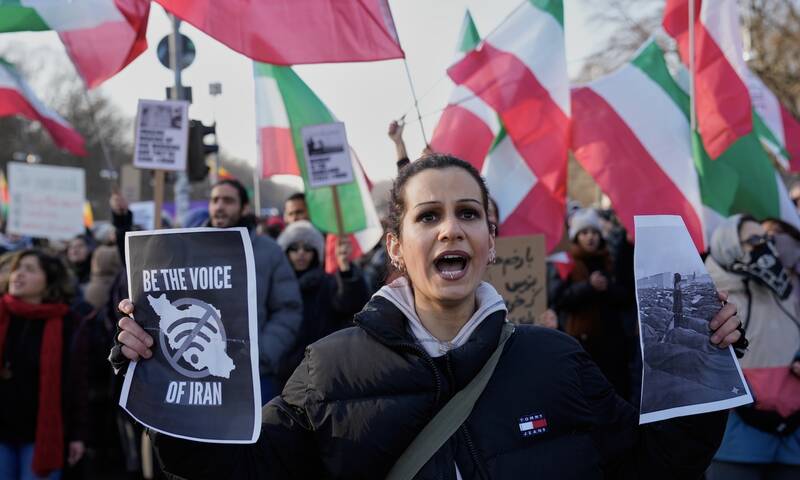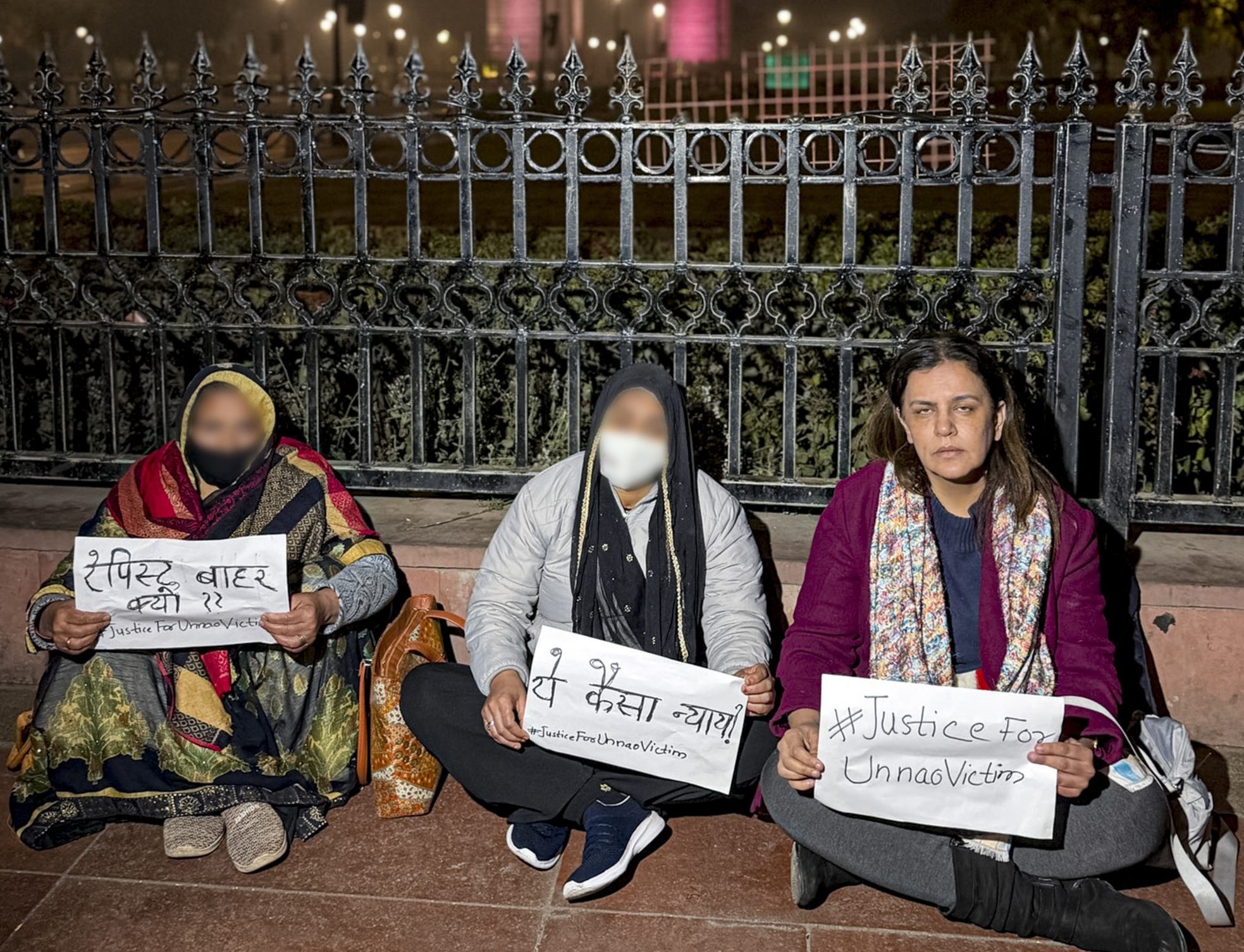On June 1, 2021, the British Council in India convened a seminar in keeping with the UK’s “Pledge for Progress” campaign. It was planned ahead of the G7 summit to be hosted by the UK in June 2021 purported to centre on the discussion around gender equality and inclusion in the aftermath of the Covid-19 pandemic. The seminar titled “What are the key elements of a post-Covid feminist foreign policy?” had an all-women’s panel and offered some significant and encouraging insights into the rudiments of a feminist foreign policy and the way forward to integrate it into existing mechanisms. In response to a question on “manels” (panels predominantly comprising men) British Council India Director Barbara Wickham assertively spoke about not participating in panels without gender balance and which fail to represent inclusivity and diversity of perspectives. She said it was incumbent on all organisations to advocate equity on panels.
In response to a question on “manels” (panels predominantly comprising men) British Council India Director Barbara Wickham assertively spoke about not participating in panels without gender balance and which fail to represent inclusivity and diversity of perspectives.
After developed countries like France, Canada and Sweden, Mexico adopted a feminist foreign policy in January 2020 and became the first country in Latin America to do so. Likewise it has set an example for all developing countries with emerging economies to consider a feminist foreign policy as the way forward.
Also read: Press And Policy: Can The Media Influence Policy-Making?
Speaking on the adoption of the policy, Deputy Chief of Mission – Embassy of Mexico New Delhi, Judith Arrieta M. stated that this move is not just for fair representation. A feminist foreign policy drafted on the basis of the core principles of feminism and human rights, is imperative in a post-pandemic world since it is premised on inclusion, compassion and collaboration and allows for a pragmatic approach, she said. The COVID-19 situation has had massive socio-economic consequences and has led to adverse impacts on the most marginalised and vulnerable in society – women, immigrants and members of other minorities like the LGBTQI+ community, indigenous people and displaced persons, to name a few. Systemic changes and addressing structural gaps are long overdue. She is also hopeful that the implementation of the policy will help tackle poverty and gender violence.
Speaking on the gender dimensions of the pandemic and in the light of the fact that women have been on the frontline in the pandemic not merely as health workers but also as care-givers, Dr. Soumita Basu, Assistant Professor, Department of International Relations, South Asia University, New Delhi reiterated the need for mainstreaming of a gender-sensitive pandemic response. Critically commenting on the UN resolution 2565 passed in February 2021 and comparing it with resolution 2532, Basu shared an important observation. While Resolution 2532 had acknowledged women’s critical role in the pandemic and the COVID-19 impact on women and other marginalised sections of society, the resolution that came later made only a passing reference to health workers and gender stands undermined in it.
Admittedly, she said that the states which would decide to go ahead with integration of a feminist foreign policy will have to do so at the risk of “diplomatic embarrassment”, but there is a need to peg specific points of a feminist foreign policy in international policy mechanisms. Feminist foreign policy is geared towards multilateral cooperation, she said.
Also read: World’s Largest Democracy Downgraded: A ‘Partly Free’ India
Foregrounding the core focus of the UK government which is advancing gender parity, Wickham cited British Council (BC) as an example of gender equity paradigms for other organisations. Talking about the Indian scene, she gave details of BC’s area of work with the British High Commission in India towards advancing gender diversity in STEM education, enhancing economic opportunities for women and adopting and implementing a gender mainstreaming approach in all areas ranging from design, implementation to evaluation. The India-UK collaborative programme GATI (Gender Advancement in Transforming Institutions) is a customised approach for transformational change in STEM in HEI (Higher Education in India) to make it more equitable.
Likewise BC has been taking constructive steps in ensuring digital empowerment along with increased English language proficiency directed at enabling improved socio-economic opportunities for women which will lead to more informed and independent life choices for them, she said.
When Dr. Rajeshwari Pillai Rajagopalan, the Director, Centre for Security, Strategy and Technology, the Observe Research Foundation (ORF) and moderator of the seminar, questioned pandemic related gender parity policies and their impact on women from developed countries versus women from developing countries, all three panellists agreed that feminist principle in the context of intersectionality is key to consider as “experiences are specific to women in specific situations”, to quote Dr. Basu.
When questioned about pandemic related gender parity policies and their impact on women from developed countries versus women from developing countries, all three panellists agreed that feminist principle in the context of intersectionality is key to consider as “experiences are specific to women in specific situations.”
Responding to a question on how a feminist foreign policy approach is different from a conventional approach in terms of food security, climate change, health and contemporary challenges, Arrieta underscored the methodical addition of a gender perspective to multilateral and bilateral issues. This translates as hearing women and making sure that women’s voices are heard whether it is “water or nutrition or security or small arms since many of the victims are women.” Arrieta emphasised on the need to include women not only through movement but also through policies and programmes. Also required for developing countries is to bridge the rural-urban divide and use digital economy to extend connection across communities of women, she concluded.
Mexico was lauded for adopting a feminist foreign policy which shows that it is not just wealthy nations alone that can afford such a policy approach and in fact it is worldview and not wealth that matters.
Featured image source: The New York Times
About the author(s)
Dr. Shyaonti Talwar is an academician, researcher and a writer whose areas of interest include popular culture, social inequality, literature, mythology and gender. A poet and a performing artist, she loves creative expressions and feels it is important to voice her critical observations. Writing is therapeutic for her and makes her feel awake and alive. She can be found on LinkedIn and Twitter.




